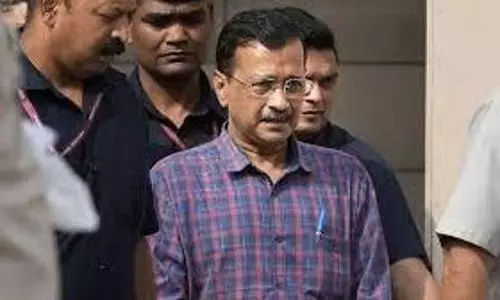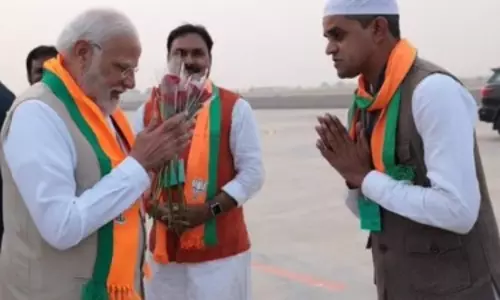
Chhattisgarh shows the way on NIA
text_fieldsThe Congress government in Chhattisgarh has filed a historic petition in the Supreme Court with a plea to declare the National Investigation Agency (NIA) Act of 2008 unconstitutional. By now, the NIA has become a national police force that encroaches on the powers of the state government and its police force. The petition also points out that with the NIA law's amendment passed by the parliament in July 2019, the central government has been misusing the agency politically and that its arbitrary erosion into the activities of the state police is against the federalism guaranteed by the constitution.
The petition has been filed before the apex court under Article 131 of the Constitution arguing that Sections 6,7,8 and 10 of the NIA act are an encroachment into the powers of the states. Petitions are already pending in the Supreme Court charging that legislations and amendments regarding the NIA and UAPA (Unlawful Activities Prevention Act) and they argue that the amendments are against civil rights. As such, it is particularly important in the current situation - when powers are being unilaterally grabbed by the Centre - that questions regarding federalism are also being subjected to judicial review.
The NIA legislation was passed without much debate of discussions in parliament unanimously in the wake of, and capitalising on the emotionally charged times following, the 2008 Mumbai terrorist attacks, by the then home minister P Chidambaram. The NIA's entry in a way gave more licence to UAPA, letting it ride roughshod over the citizen's fundamental rights with more draconian strength. At that time, its reckless use was reined in only through decades long protests and legal battles. And objective analyses about their use and application, have demonstrated that most of the cases taken up by NIA during ten years were weak and marred by partiality.
It was none other than the apex court which criticised that the acquittal of accused in the Samjhotha Express blast, which had killed 63 people, was a deliberate failure of the NIA. And the NIA exonerated the Malegaon case accused; but the case is continuing even today, only because the court refused to close the probe. To be read with this is the fact that the NIA took a stand in favour of the accused in all cases where sangh parivar culprits were in the defence. At the same time, the NIA law, as it stands now, is also becoming handy for it to hold in detention and thus to silence some of the most eminent academicians and human rights champions, under provisions of the UAPA.
It was when the very relevance of NIA was being questioned that in July 2019, home minister Amit Shah brought in amendments to UAPA and the NIA Act making them more authoritarian. Not only the civil rights of the citizens, but also the rights of state governments were usurped through this. The allegation raised by the CPM that NIA took over the recent case against Alan-Thaha in Kerala without consulting the state government, was on the basis that it violated federalism. Although reproach was raised right then that it would harm the spirit of federalism, most of the political parties including the Congress fell in for the one-line challenge of Amit Shah 'let the country see those who oppose national security' and voted in favour of the amendment.
When six members, including three from the CPM, of Lok Sabha voted against the bill, K Muraleedharan walked out of the house taking objection to the Congress stance to support it. And the contradiction between the party's opposing it during debates and supporting it during voting, was justified by the party leader Adhir Ranjan Chowdhury with a specious argument that it was to send a message that the party was with the government in fighting terrorism. In a way, the petition filed by Chhattisgarh chief minister Bhupesh Baghel in the Supreme Court, is also one that negates this doublespeak of the Congress.
We once again invoke what Madhyamam had said without reservations, when the NIA unilaterally took over the Alan and Thaha case: if the CPM secretariat is sincere in its stance, it should be prepared to file a petition with the Supreme Court stating that the take-over of the Alan-Thaha case represented an encroachment into the federal character. In the new situation with the students' agitation in its bloom, it will also pave way for a debate and political discourse about the constitution. In the establishment of NITI Ayog, and in the implementation of GST and Right to Information ACt amendments too, the spirit of federalism was ignored.
The Motor Vehicles Act amendment bill, Dam Safety Bill and the National Medical Commissions are all in the line-up. In short, a 'strong' Centre will start entering the states' territory more and more. To take on this move, Kerala should also implead itself in the petition by Chhattisgarh. The government of Kerala and its people should lend their hand in this effort to recapture this cardinal federalist principle of the Constitution. In the least, the government has the binding to not throw the youth of the state, as it happened in the case of Alan-Thaha, to the ruthless clutches of the draconian law.























